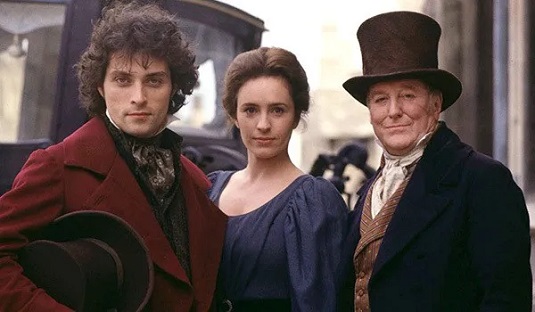
The Fraud by Zadie Smith
Empty World by John Christopher
Snow White by Donald Bartheleme
Who? by Algis Budrys
The Periodic Table by Primo Levi
All the Colours of Darkness by Lloyd Biggle Jr
Children of Time by Arian Tchaikovsky
Pavane by Keith Roberts
Hour of the Horde by Gordon R Dikson
Artifact Space by Miles Cameron
Fiasco by Stanislaw Lem
The Men by Sandra Newman
Orbital Resonance by John Barnes
The Seventh Son by Sebastian Faulks
Hiero's Journey by Sterling E Lanier
Taken as Red by Anushka Asthana
Beyond the Hallowed Sky by Ken MacLeod
Optiman by Brian Stableford
Invaders from Earth by Robert Silverberg
A Fall of Moondust by Arthur C Clarke
Our Friends from Frolix 8 by Philip K Dick
Drachenfels by Jack Yeovil
In Ascension by Martin MacInnes
Let Me Tell You What I Mean by Joan Didion
Middlemarch by George Eliot
Red Planets: Marxism and Science Fiction by Mark Bould and China Mieville (eds)
A list dominated by science fiction titles, I know. Thought I'd use the last couple of months to make inroads into the old SF to-be-read pile. Apart from those already blogged about, one that's worthy of a few remarks is Sterling Lanier's Hiero's Journey. A science fantasy number in the Jack Vance mould, following the journey of our Hiero (and hero) across the mutated post-nuclear landscape of North America is hugely entertaining. The folks at Gollancz obviously agree, seeing as it (and the sequel) have lately had the SF masterworks treatment. This is a recommend if you like that sort of thing. But, be warned, the characterisation of the novel's sole woman is rubbish to the point of cringingly embarrassing. Sandra Newman's The Men almost landed with me. The premise - everyone with an xx chromosome suddenly vanishes and, weeks later, disturbing videos of men and boys and trans women being herded by strange creatures are broadcast on the internet - was intriguing enough. And what we get is a set of character studies of women coming to terms with the trauma of loss and trying to make good of what's left - which, for some, is something of an opportunity. I thought this was fine until we got to the end which, no spoilers, properly soured everything that came before. That said it hasn't put me off Newman's work and her Julia, an officially sanctioned re-imagining of Nineteen Eighty-Four is on the TBR. Lastly, I really enjoyed John Christopher's world-ending plague story, Empty World. I might write about it if I ever get round to writing that long-promised piece on The Tripods.
Non-genre wise, sitting modestly at the bottom of the list is George Eliot's Middlemarch, a book that has perched on the edge of my consciousness demanding to be read for over 20 years now. What can be said about a book that's sometimes heralded as the greatest novel in the English language? I wouldn't go that far for sure, but it is beautifully written and engaging. This is a long story about relationships and the possible fates that await bourgeois young women in pre-Victorian England. Might one marry the wrong man? Or end up with someone of limited means? Two marriages are at the heart of this novel, and we follow through the consequences of duty, dissipation, indebtedness and, in the last quarter, scandalous goings ons. It's not for everyone of a modern temperament because its pacing is quite sedate, despite covering several years, and it is fairly gentle - certainly not as dramatic as The Mill on the Floss. But Middlemarch is essential for grasping English literary culture.
New year, new reading goals? Yes. There will be a return to the SF/non-SF balance, but I've decided it's about time to knock some more landmark works off. I'm not getting any younger, sob, sob. There's going to be more social theory/politics stuff as well, and the odd bit of SF literary criticism when I can find some.
Do you have any reading intentions for the new year?
No comments:
Post a Comment